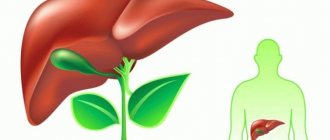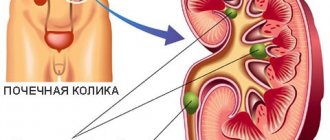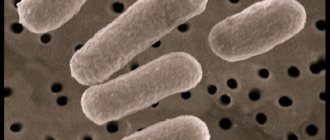The girl is heavily intoxicated
Alcohol poisons internal organs and leads to a deterioration in human health. Regardless of the amount drunk, the body becomes intoxicated. Alcohol causes impaired mental function and clouding of consciousness. Toxic substances are carried through the circulatory system and disrupt metabolic processes.
What is alcohol intoxication?
Alcohol intoxication is a disruption of body functions as a result of alcohol poisoning. A state of intoxication occurs after drinking alcoholic beverages, regardless of their quantity. Spreading throughout the body, the drink from the stomach enters the duodenum. The alcohol reaches the liver and turns into acetaldehyde, and then into acetic acid.
Excess alcohol in the body inhibits the conversion of acetaldehyde. The organic compound is much more toxic than drinking strong drink. Decay products spread through the circulatory system and cause acute alcohol poisoning.
What kind of alcohol can cause poisoning?
Methyl alcohol poisoning
Poisoning occurs as a result of drinking ethyl or methyl alcohol, low-quality vodka and moonshine. Cosmetics (cologne, lotion) and technical fluids (wood alcohol, brake fluid) lead to severe poisoning. An alternative to dietary liquids is tincture of hawthorn and red pepper. Ethanol partially neutralizes the body, and an overdose threatens a person with death. In case of severe poisoning, call an ambulance.
Only a doctor can correctly prescribe medications that treat alcohol poisoning.
Consequences of excessive alcohol consumption
The consequences of alcohol poisoning can lead to temporary loss of ability to work or even disability. In severe cases, death is possible. Alcohol poisoning, the consequences of which can significantly reduce the quality of life, leads to the following disorders:
- decreased visual acuity or even complete loss;
- liver dysfunction;
- stomach ulcer;
- burn of the esophagus;
- nervous disorders.
The liver is destroyed as a result of regular alcohol consumption. The reproductive system suffers from alcoholism.
A hangover is a temporary deterioration in well-being. Much more serious are the consequences associated with the development of chronic and deadly diseases.
Symptoms of intoxication
Depending on the quality of alcoholic beverages and the amount drunk, there are 3 stages of alcoholic intoxication:
- The first stage is characterized by increased sociability, relaxedness and a positive attitude. Mild intoxication contributes to a decrease in self-control and reaction speed.
State of intoxicationThe second stage leads to the accumulation of alcohol in the human body. Alcohol moves through dilated blood vessels into the brain, causing dizziness, headaches, and flushing (redness of the facial skin). Blood alcohol levels rise sharply, leading to nausea and vomiting. Since 80% of alcohol is absorbed in the small intestine, diarrhea and frequent urination occur. Dehydration causes a person to constantly feel thirsty. You may notice lethargy and impaired attention.
- The second stage easily flows into the third. If measures are not taken to remove poisons from the body, the condition of the poisoned person worsens. The mood begins to change from bouts of euphoria to a depressive state. Behavior depends entirely on the situation. In a state of intoxication, the patient is unable to establish his thought process. There is clouding of consciousness, loss of coordination of movements, as well as:
- slurred speech occurs;
- pupils constrict;
- beads of sweat appear on the body;
- tremor occurs (a state of shaking hands);
- loss of consciousness;
- coma.
Superficial coma is characterized by a weak reaction of the pupils to light. Blood pressure rises and a large amount of saliva is produced. A person reacts to ammonia in superficial coma, and weakly in moderate coma. Deep coma is characterized by pale and bluish skin. The extremities become cold and the blood pressure drops. In this case, the pupils do not react to light and remain constricted.
First aid for poisoning
In case of alcohol poisoning, it is necessary to induce vomiting in the patient. For these purposes, drink some water with soda or potassium permanganate. An alternative method is the use of sorbents. Atoxil, Enterosgel and Smecta have a sorbing effect. Use 5-6 packets of these medications per day. You can get rid of breakdown products and remove them from the body faster by drinking plenty of fluids.
First aid scheme for alcoholic coma
If the patient is in serious condition, he is placed on his side. Ammonia will help bring a person to consciousness. Make sure that the patient’s tongue does not sink in, holding it with a napkin. Gastric lavage cannot be done at home in this condition. The body is freed from confining clothing and wrapped in a warm blanket. Massage movements in the area of the earlobes will help the body cope with clouding of consciousness. To maintain health, complete cleansing of the body from poisons is carried out under the supervision of a doctor.
First aid - how you can help yourself
Life does not always present us with pleasant surprises; very often the situation after festive feasts develops in such a way that the question arises: when did poisoning occur and a person has alcohol intoxication, how can it be relieved at home, urgently, in order to save a life?
In case of severe alcohol intoxication, first of all, the person should not be left unattended. He is constantly in a certain danger, as he can fall and suffocate on vomit. In addition, in this condition, a sudden stop in breathing and cardiac activity often occurs, a stroke, renal or hepatic colic develops.
Attention!!!
If persistent vomiting occurs, with bile or blood clots, you should immediately call an ambulance. Such symptoms usually indicate the development of severe pathology.
Under the influence of alcohol, even the most calm and modest person is capable of sudden outbursts of aggression. Therefore, before performing first aid, you must try to explain to the victim the procedure for your actions. They will be as follows:
- Free the person from dirty, tight, wet clothing and cover him warmly.
- You should not try to take the victim to the shower room or constantly give him strong tea, especially coffee. The caffeine contained in these drinks can increase the effects of intoxication, which in turn provokes the development of a heart attack and a sharp increase in blood pressure.
- Artificially induce a gag reflex. This is allowed only if the person is conscious. In a faint or near-fainting state, this is fraught with vomit getting into the respiratory tract.
- When vomiting, place a drunk person in a half-sitting position, tilt his head forward and constantly hold him to prevent injury.
- If the poisoned person is unable to sit, then during a vomiting attack he must be placed on his side and his head turned so that it hangs from the bed. In this position, the victim may fall, so he must also be supported.
- To remove residual alcohol from the stomach, you can rinse it by consuming 2 glasses of salt water. This is usually followed by a gag reflex. It is recommended to continue rinsing until the water becomes clear.
Help for severe alcohol poisoning!
If the stomach is empty and vomiting does not stop, then you should do the following: wet your head with cold water, apply ice to the back of your head, drink a little Regidron solution, do not consume any food or other drinks.
Treatment of intoxication
Several treatment methods are used to relieve alcohol intoxication. To prevent the absorption of toxic substances into the blood, the patient's stomach is washed.
A dropper with a solution of glucose and sodium chloride helps reduce the level of alcohol in the blood. If the patient is in a coma, he is injected with a solution of insulin, caffeine and glucose. To improve the condition, an injection of vitamin B6 is given. Additionally, Panangin or Regidron is prescribed to restore the water-salt balance.
Biotredin
Taking an enterosorbent and an enveloping agent will help the body cope with poisoning. Biotredin will reduce the amount of acetaldehyde in the blood and improve the functioning of internal organs. The speed of action of the drug is an additional advantage.
The main condition in the treatment of alcohol poisoning is complete abstinence from alcoholic beverages. Repeated intake of alcohol will lead to complications and treatment will be ineffective. The doctor will prescribe medications that improve immunity after cleansing the body.
Taking enterosorbents during intoxication
The first signs of alcohol poisoning appear literally a few minutes after alcohol enters the gastrointestinal tract. This organ takes the first hit of alcohol.
Alcohol poisoning causes abdominal pain, diarrhea, bloating and severe vomiting. In addition, alcohol washes out beneficial microflora from the intestines, after which the organ cannot digest food normally. The best way to relieve alcohol intoxication is enterosorbents. These substances capture alcohol toxins and remove them with feces without damaging the walls of the intestines and stomach.
Carbon tablets, Smecta, Enterosgel and other popular drugs can be used as enterosorbents. For mild and moderate poisoning, several doses of medication are sufficient; for severe poisoning, enterosorbents are used to lavage the stomach.
These substances also have their disadvantages in case of alcohol overdose. They can significantly reduce the effect of other drugs and can disrupt the normal activity of microflora. Therefore, when relieving alcohol intoxication, it is imperative to take medications with beneficial bacteria.
Treatment of alcohol poisoning at home
When providing first aid at home, the patient must take a contrast shower. This is the most powerful method of getting rid of clouding of consciousness. If the stomach has been washed with potassium permanganate, it is recommended to drink strong black tea or some water after the procedure. You can add 1 tsp. Sahara. For poisoning, a decoction of rose hips is suitable, which will speed up the removal of toxic substances from the body.
What to do during a hangover
It is much easier to cope with a hangover with the help of activated carbon, No-shpa and aspirin (in the absence of heart problems). Coal will cope with intoxication, and No-shpa will help the liver process harmful compounds. Aspirin is used to stabilize blood pressure and thin the blood.
Ginger tea with lemon will help the affected person cope with nausea. Additional vitamins are necessary during intoxication to avoid vitamin deficiency. For stomach cramps, an effective remedy is a decoction of chamomile and lemon balm. It helps the victim calm down.
To cleanse the body of poisons, you need to drink milk and vitamin juices. Milk can be replaced with a glass of kefir, which normalizes the condition of the intestines. Chicken broth or rice soup will help eliminate bad breath and stomach pain. They envelop the mucous membrane and have a positive effect on the functioning of the gastrointestinal tract.
Consequences and complications of alcohol poisoning
Intoxication of the body leads to clouding of consciousness and mental problems. The patient may experience delirium tremens, psychosis and dementia. After a heavy libation, the functioning of organs and systems is disrupted:
- acute renal failure;
- inflammation of the walls of the stomach and intestines;
- metabolic disease;
- dilation of the esophageal veins and bleeding;
- the immune response decreases;
- sensitivity of the limbs decreases;
- the process of absorption of vitamins by the intestines is disrupted.
Long-term alcohol consumption slows down the production of insulin, so the risk of developing diabetes increases. Complications affect the cardiovascular system, changes occur in the fibrous structure of the organ. The blood vessels narrow, the brain does not receive enough oxygen, which leads to stroke and heart attack. As a result, the patient can expect death.
The effect of surrogate alcohol on the human body
The prognosis after using alcohol surrogates is disappointing. If the patient's condition improves, unpleasant consequences arise for the body. Vision deteriorates to the point of blindness, and the functioning of the respiratory apparatus and cardiovascular system is disrupted. The liver, kidneys and pancreas stop functioning normally.
Poisoning with surrogate alcohol
Poisoning with low-quality and counterfeit alcohol occurs even when taking a small amount of the drink. Surrogates are identical in appearance, smell and even taste to high-quality alcoholic beverages, but the damage they cause to the body can be much greater.
Intoxication when using counterfeit drinks occurs later than intoxication.
The main symptoms of poisoning with surrogate alcohol:
- vision problems - the eyes begin to darken, vision decreases or disappears;
- there is noise in the ears;
- Coordination is seriously impaired (this is primarily associated with hearing and vision impairment, and only then with intoxication);
- saliva is produced in large quantities;
- there is severe pain in the abdomen.
In case of intoxication with alcohol surrogates, it is necessary to urgently call an ambulance. Treatment at home can cost a person his health and even his life.
In case of an overdose of low-quality alcohol, you must urgently call an ambulance, since symptoms of chemical poisoning occur - the skin turns pale, heart function is disrupted, a rash or swelling may appear (in rare cases), the person loses consciousness, and a coma occurs. In some cases, poisoning may be accompanied by foaming at the mouth.











